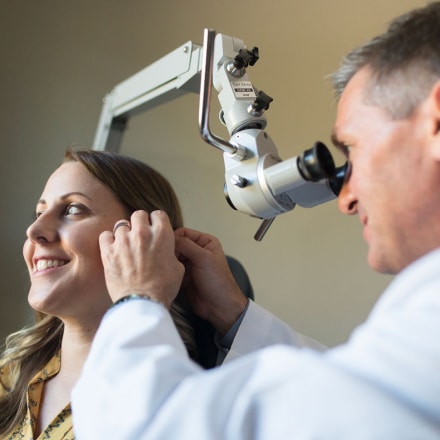
Determine If You Need to See a Specialist
When a general practitioner cannot resolve or identify your ear, nose or throat-related issue, they will typically refer you to an otolaryngologist.
Below is a handy self-screener that can help you determine if you should see an ENT.
- Do you experience frequent hoarseness or sore throat?
- Have you noticed a lump or swelling in your neck lasting more than two weeks?
- Have you ever been told or suspect that you snore and/or stop breathing while you sleep?
- Have you experienced four or more sinus infections in the past year?
- Are your nasal symptoms worse in the spring, summer and/or fall?
- Do you ever experience facial pain, facial pressure, sinus headaches or congestion?
- Are you experiencing sudden hearing loss?
If you answered yes to one or more of these questions, you might be experiencing an ear, nose or throat disorder.

What Are the Next Steps for Your ENT Visit?
1. Setup an Appointment
Contact us to schedule an appointment with an otolaryngology specialist. Our front office staff will be happy to answer any questions you may have. Visit our location page for direct contact information.
2. Prepare for Your Visit
Write down any questions you may have for your ENT and list your symptoms, when they occurred and any treatments you have tried, even if those symptoms do not seem related to the condition you are being seen for.
3. Set Your First-Time Visit Expectations
An otolaryngologist will ask you questions about your symptoms and typically examine your ears and sinuses, feel your neck for lumps and visually inspect your throat and tonsils.
Further testing, including X-rays or CT scans, may be requested before a diagnosis is determined.
The symptoms of ENT disorders often overlap. We use a holistic approach to determine the cause of your symptoms so we can recommend the right treatment for you. Take the first step toward ear, nose and throat relief. Schedule an appointment today.